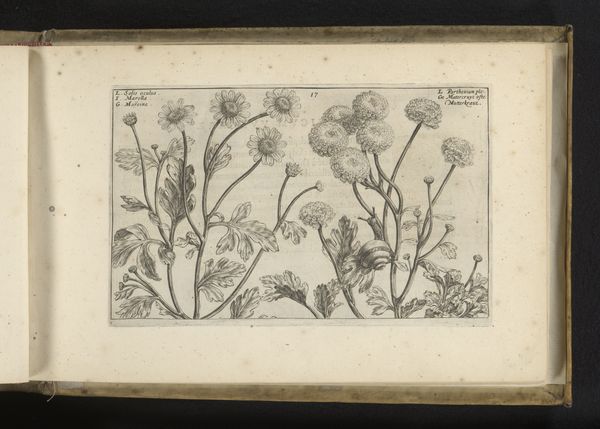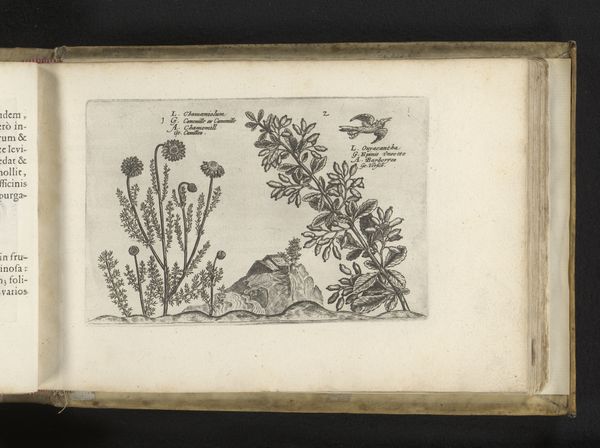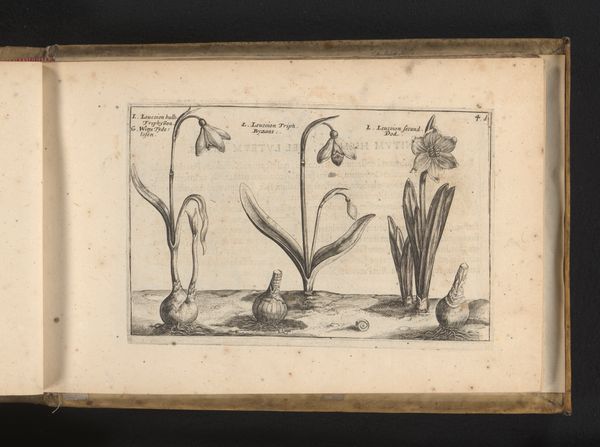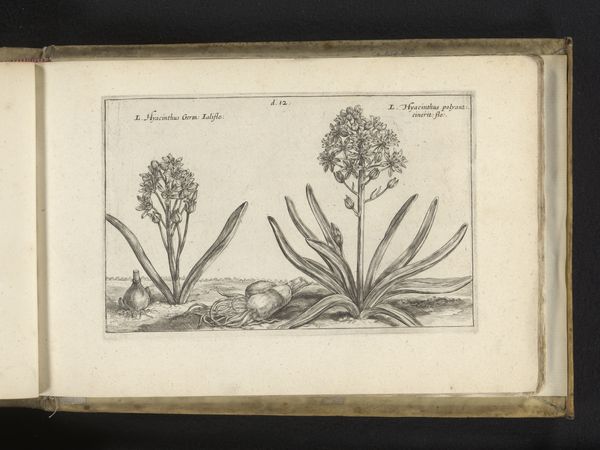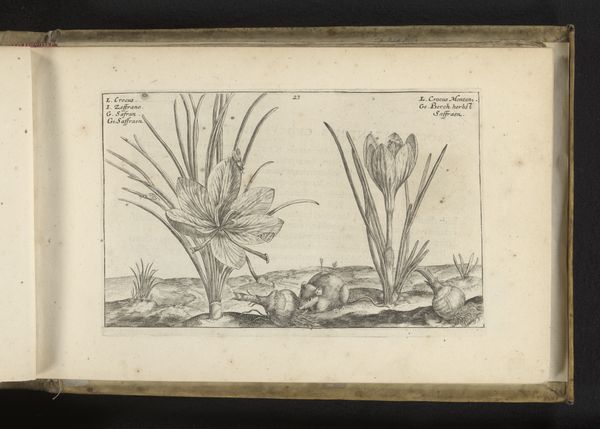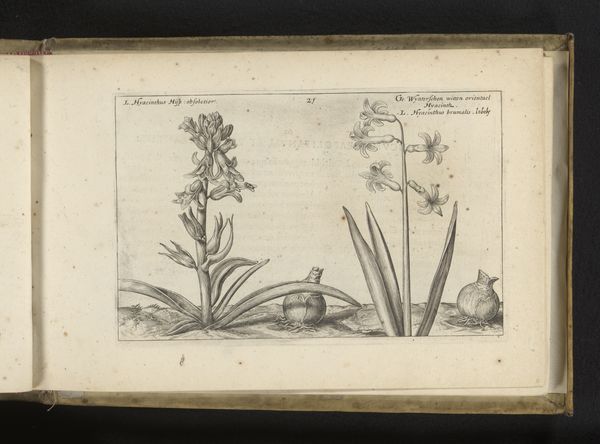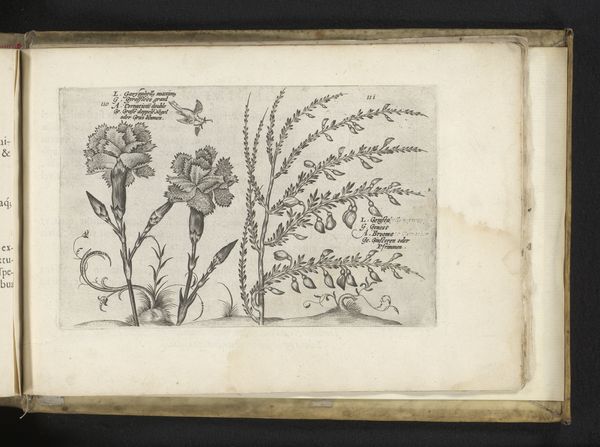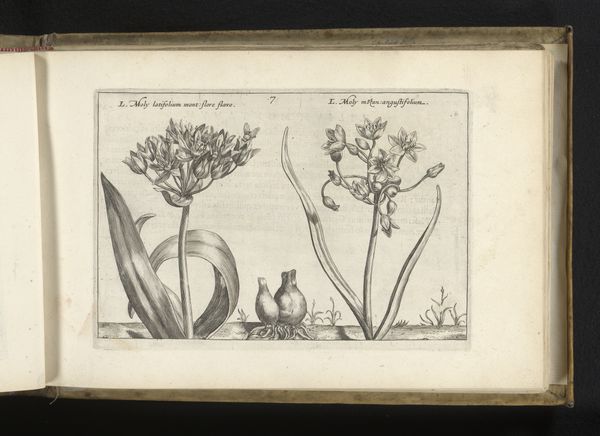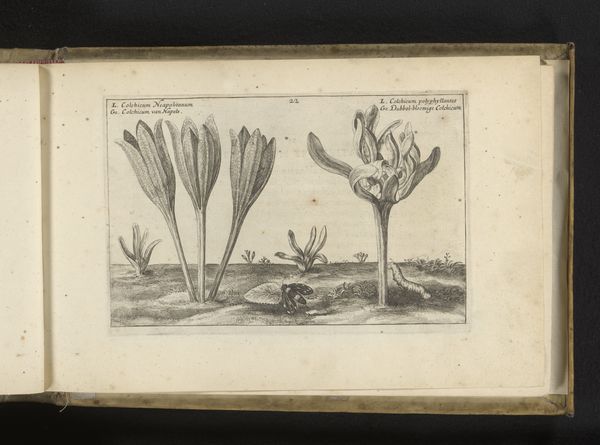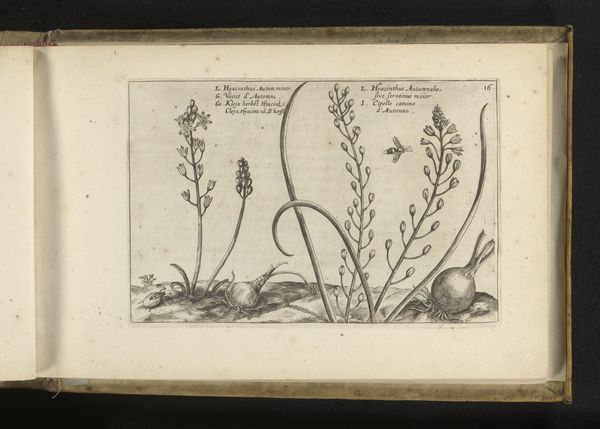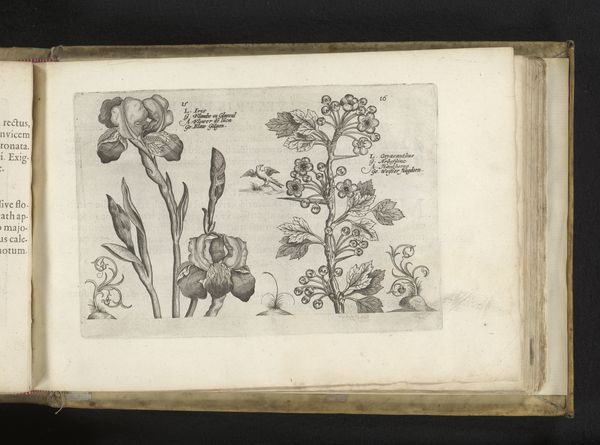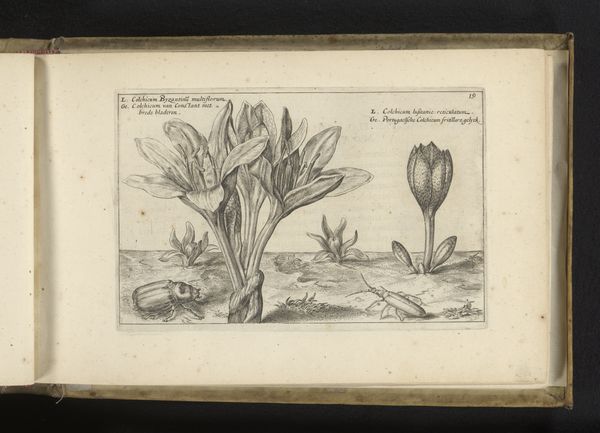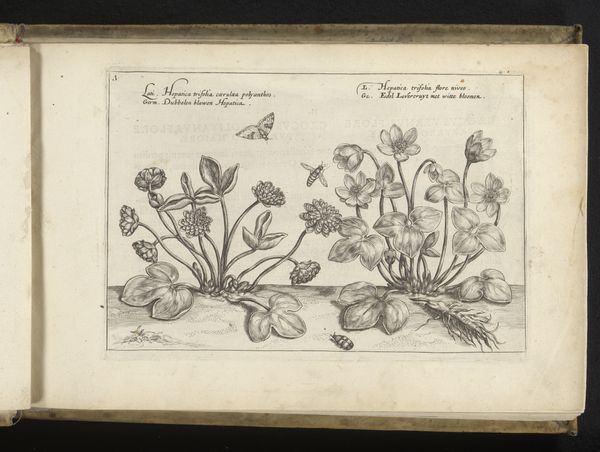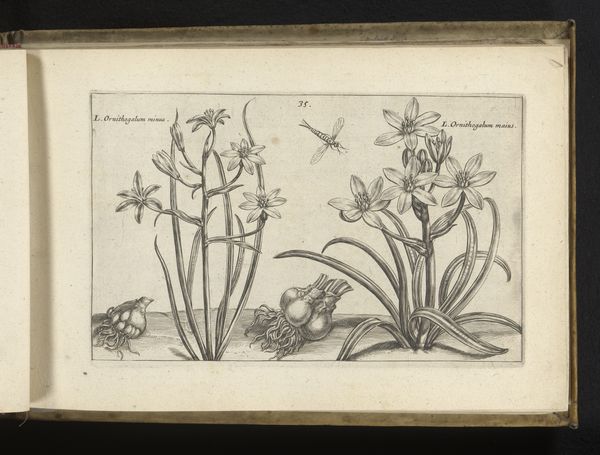
drawing, print, paper, ink, engraving
#
drawing
#
ink paper printed
# print
#
flower
#
paper
#
ink
#
pen-ink sketch
#
line
#
northern-renaissance
#
engraving
#
realism
Dimensions: height 136 mm, width 205 mm
Copyright: Rijks Museum: Open Domain
Crispijn van de Passe the Younger created this engraving of two liverwort variants sometime before 1670. A Northern European interest in botany arose during the early modern period, fueled by exploration and trade. The scientific language and detailed rendering reflects a cultural desire to classify and control the natural world. Yet, this print can also serve as a reminder of the spiritual and emotional connection between humans and nature. Consider how gender and class may be implicated in van de Passe’s work. The study of botany was considered an appropriate and refined pursuit for women of the upper classes, but would have been less accessible for those from lower socioeconomic backgrounds. With its delicate lines and focus on minute details, the artwork draws you into a quiet, contemplative space, inviting us to reflect on our relationship with the natural world. It serves both as an early example of scientific illustration and a testament to the enduring human fascination with the beauty and complexity of nature.
Comments
No comments
Be the first to comment and join the conversation on the ultimate creative platform.
